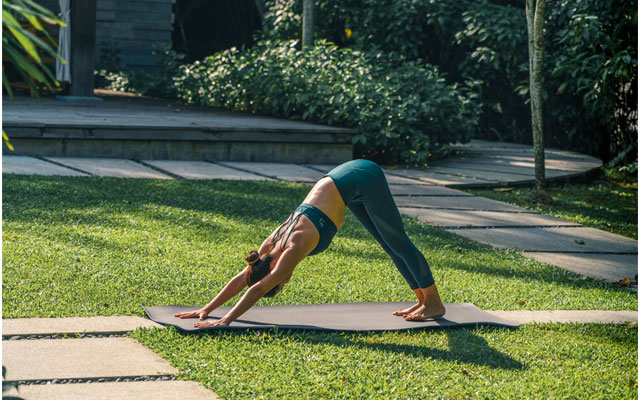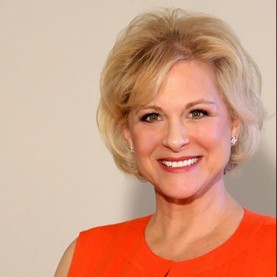From meditation domes to laughter labs, wellness objectives have been steadily making their way into meeting agendas in recent years. And like most pre-Covid trends, this is expected to intensify in the new normal.
Right now, most event professionals are focused on the physical health and safety protocols needed to kickstart the industry, but even when the face masks come off, the desire to stay safe and well will remain.

According to Bill Barnett, managing director at hospitality consultancy, C9 Hotelworks, this will create opportunities to embed ambient wellness into venues and hotels.
“The past few months have allowed us to reflect on what’s really important in life,” he said. “That’s why we believe health and wellness is the new luxury.”
Event planners too will need to consider health-boosting factors such as airflow, natural light, and “bringing the outside in” when designing event spaces.

A long-time believer in the healing power of nature, Debra Duneier, founder and president of EcoChi, a New York-based interior firm, says “green spaces” can leave people feeling less stressed and more focused.
Evidence-based studies conducted by the Global Wellness Institute also illustrate the health benefits of the natural environment, including mood elevation and lower blood pressure.
“The amazing thing is, when we’re indoors and have a symbol or representation of nature, the same thing happens,” Duneier said. “Loving nature is part of our DNA.”
Focused on purposeful design, Duneier combines classical Feng Shui, environmental psychology and sustainable practices when creating a space – and in a post-Covid world in need of healing, event planners may be required to do the same.
For the 2017 Global Wellness Summit at The Breakers Palm Beach in 2017, Duneier designed meeting spaces that were based on the “sacred geometry” of the site to ensure a balance of energy.
As well as the celebrated “wow” moment, creating space for reflection, meditation and renewal will become increasingly important.
At last year’s Global Wellness Summit at The Grand Hyatt Singapore, breakout rooms housed nightly gong performances to ensure delegates could unwind before bed. Meanwhile, a biophilic design was also used for networking spaces to create a sense of calm and recall Singapore’s Garden City reputation.
Earlier this year, Hyatt Hotels announced a global partnership with Headspace, a leader in mindfulness and meditation, to offer exercises, guided meditations and sleep content to employees and guests. Specialised wellness packages for meeting and conference attendees will be launched later this year.
During Singapore’s Circuit Breaker, The Grand Hyatt Singapore created a #WellnessWednesday campaign on social media, sharing meditative videos and tips. In preparation for the reopening of events, the hotel’s culinary team is also drafting new event menus, where locally-sourced, healthy ingredients are served as individual portions – think rice paper kimchi rolls, house-made ‘instant noodles’, and plant-based sherbet.
The lingering effects of prolonged isolation and social distancing will also shape the future of incentive travel.
When the Hong Kong Tourism Board unveiled its MICE recovery plan in May, general manager, MICE and cruise, Kenneth Wong said a series of wellness-themed incentive itineraries will soon be introduced. These will include agricultural tours on Lantau Island, and guided forest bathing or tea pairing in Taipo.

Katherine Droga, the founder of the Wellness Tourism Summit (scheduled for September 3-4, 2020 in Queensland, Australia), opines that wellness will become a critical decision-making factor when it comes to business travel.
“Based on a recent survey we conducted, 65 per cent of people value wellness as part of their work environment more than they did five years ago,” she said. “Forty per cent of respondents said wellness offerings influence their choice of accommodation when planning a business trip.”
Wellness sabbaticals could also become the new incentive, where work is blended with wellness programming.
Droga added: “The wellness sector is being referred to as a ‘second responder’ to the Covid-19 crisis because the ability to rejuvenate and reconnect will help society heal and move business forward.”





















